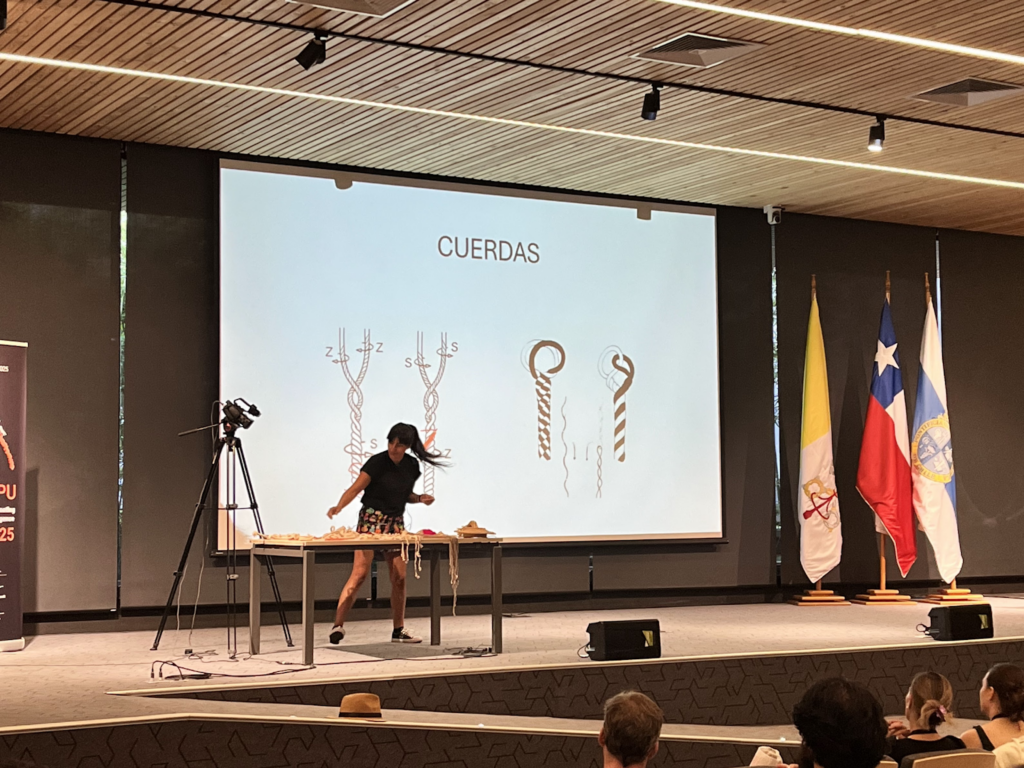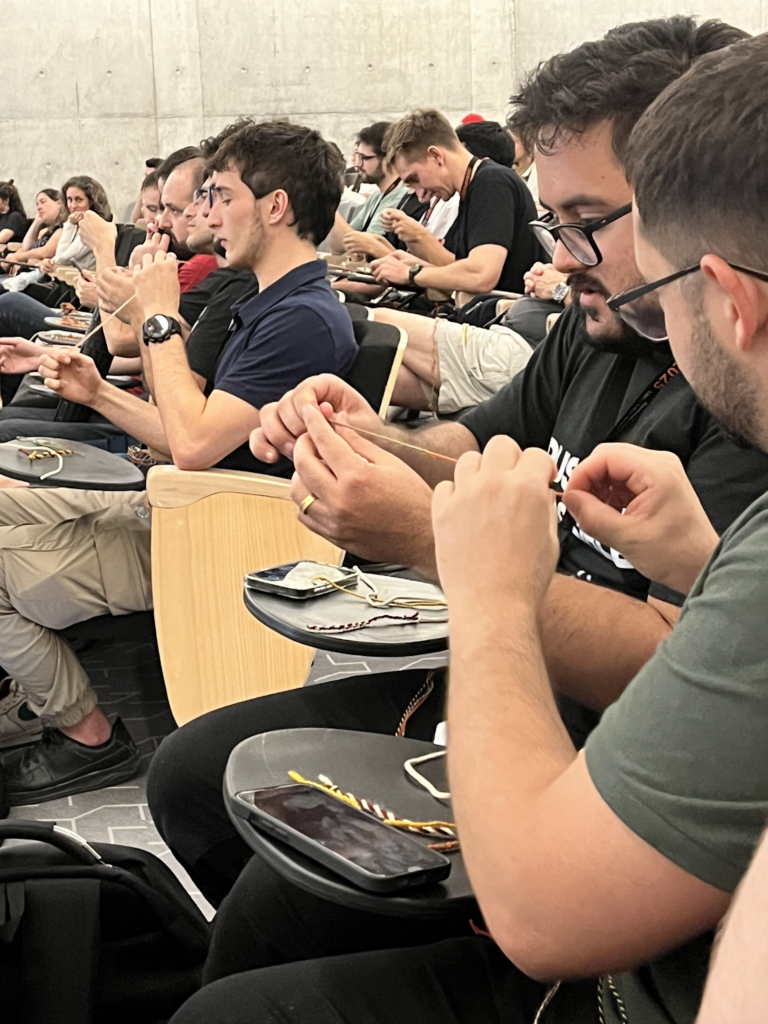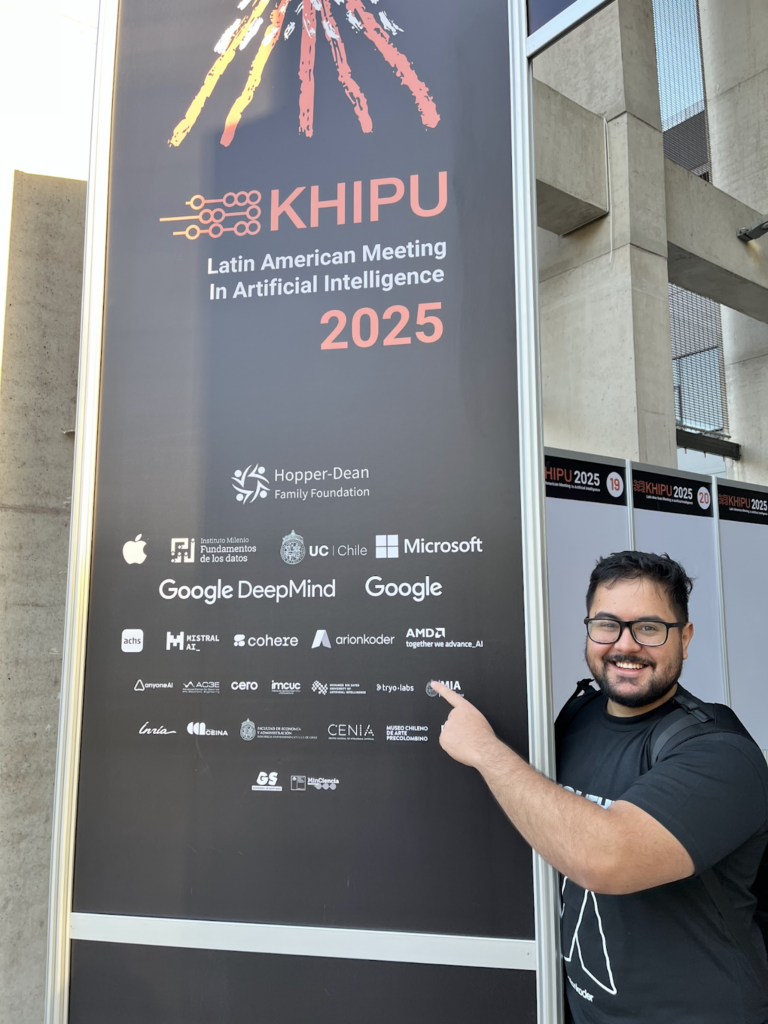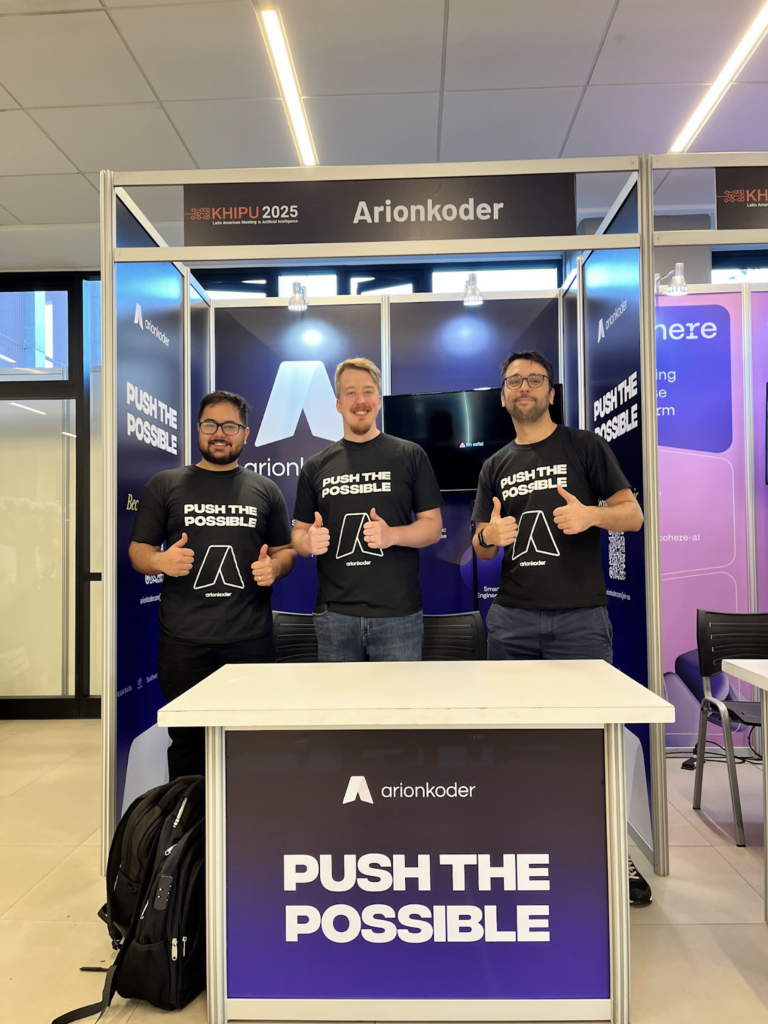In March, we had the privilege of attending and sponsoring Khipu 2025, the most important gathering for the AI community in Latin America. It was a week full of inspiration, learning, and meaningful conversations. In a series of articles, we want to share our perspective on what made this edition of Khipu so special—from the technical depth of the lectures and tutorials to the broader reflections on the future of AI in the region.
Khipu has established itself as Latin America’s foremost gathering for artificial intelligence research, education, and collaboration. The conference serves as a vital platform for strengthening AI communities across the region while facilitating knowledge exchange between Latin American researchers and the broader international community. Named after the ancient Inkan string recording system, Khipu embodies the spirit of information sharing and knowledge preservation in a modern technological context.
The origins and purpose of Khipu
Khipu emerged as a response to the need for a dedicated AI conference in Latin America. The event aims to democratize access to advanced AI education and foster regional collaboration in this rapidly evolving field. Khipu’s primary mission revolves around three core objectives: offering training in advanced machine learning topics such as deep learning and reinforcement learning; strengthening the machine learning community by fostering collaborations between Latin American researchers; and raising awareness about AI’s potential benefits for Latin America.
The conference format draws inspiration from the successful Deep Learning Indaba events in Africa, indicating a global movement to decentralize AI knowledge and empower researchers from regions traditionally underrepresented in technology development. Khipu differentiates itself through its commitment to accessibility—accepted students attend without registration fees, and financial assistance for travel expenses is available to select applicants, ensuring that economic barriers don’t prevent talented individuals from participating.


Past editions and growth
Khipu 2019: The Inaugural Conference
The first edition of Khipu took place from November 11–15, 2019, at the Universidad de la República in Montevideo, Uruguay. It marked a pivotal moment for AI in Latin America, bringing together students, researchers, entrepreneurs, and industry practitioners from 13 countries across the region. Distinguished speakers included Yoshua Bengio (Turing Award winner), Jeff Dean (Google AI Chief), and Ian Goodfellow (creator of GANs). The program featured lectures on machine learning fundamentals, deep learning, generative models, reinforcement learning, and AI applications in healthcare and social good. Notably, the event provided free registration and travel scholarships to all accepted students and academics, ensuring accessibility despite high regional travel costs.
Khipu 2021: Virtual Event Series
Due to the COVID-19 pandemic, Khipu 2021 transitioned into an innovative virtual format consisting of monthly online meetings throughout the year. These sessions focused on two main themes: Conversations on AI, which explored critical unsolved problems with researchers from Latin America and beyond; and Applications of AI, showcasing real-world use cases relevant to the region. Prominent speakers included Emily Denton (Google Ethical AI team), Luciana Benotti (CONICET), Laura Alonso Alemany (Natural Language Processing expert), and Shakir Mohamed (DeepMind). The series emphasized ethical considerations in AI development, fairness in machine learning systems, and mentoring opportunities for young researchers. This format allowed Khipu to maintain its momentum while adapting to global challenges.
Khipu 2023: A Return to Montevideo
Khipu returned to Montevideo for its 2023 edition, held from March 6–10. This event brought together 200 participants from 13 Latin American countries and attendees from a total of 18 nations. The conference emphasized community building, advanced training sessions on topics like computer vision and generative models, and discussions on AI’s potential to enrich lives across the region. Keynote speakers included Guillermo Sapiro (Apple), Nando de Freitas (DeepMind), Peter Norvig (Google), Kyunghyun Cho (New York University), Rachel Ward (UT Austin), and others, discussing a myriad of different topics. A highlight was the signing of the Montevideo Declaration on Artificial Intelligence, which advocated for ethical AI development aligned with human rights and democratic principles. Khipu 2023 reinforced its role as a hub for collaboration and innovation in Latin America
The KHIPUx Program: Extending Reach and Impact
Following the success of the first two editions of Khipu, the organizing committee launched the KHIPUx Program to extend the conference’s influence throughout Latin America. This initiative supports smaller, localized AI events across the region, allowing the Khipu ethos to reach communities that might not have access to the main conference. KHIPUx events are one to three-day gatherings focused on disseminating machine learning knowledge locally within Latin American countries. These events can be either newly created or pre-existing AI conferences that align with Khipu’s values. The program draws inspiration from Africa’s IndabaX events, demonstrating a global pattern of regional AI community development. The KHIPUx program exemplifies Khipu’s commitment to grassroots community building and AI democratization. By supporting local organizers, the program helps create a continuous AI learning ecosystem beyond the annual main conference, ensuring sustained engagement with artificial intelligence topics throughout the year.
Khipu 2025 – Sponsoring the largest edition so far
This story brings us to Khipu 2025, which happened from March 10-14, 2025, in Santiago, Chile. The conference primarily took place at the Faculty of Economics and Administration of the Catholic University of Chile, with the final day extending to CEINA (Centro de Extensión Instituto Nacional) to engage the broader Chilean AI community.
Continuing with its tradition of blending technical training, cutting-edge discussions, and networking opportunities, the first three days were dedicated to lectures and tutorials led by some of the most respected names in AI, while the latter half of the week featured panel discussions, parallel sessions, and keynotes that explored the intersection of AI, industry, and society.
This edition was the largest so far: more than 500 attendees (49.8% non male!), 50.4% with a PhD or a MSc, and full of booths from companies and sponsors.
At Arionkoder, we were proud to sponsor Khipu 2025, reaffirming our commitment to the development of AI talent in Latin America. Our sponsorship played a role in supporting the conference itself, but more importantly, it allowed three students from Latin America to attend the event with all travel expenses covered—a contribution we believe is critical to making AI education more accessible to emerging talent in the region.Throughout the conference, we engaged with students, researchers, and industry professionals, discussing the future of AI and showcasing our vision for AI-driven innovation. In upcoming articles, we’ll cover our key takeaways from Khipu 2025—the moments that stood out to us, the discussions that shaped our understanding of AI in the region, and the ideas that will undoubtedly influence the way we think about the future.


